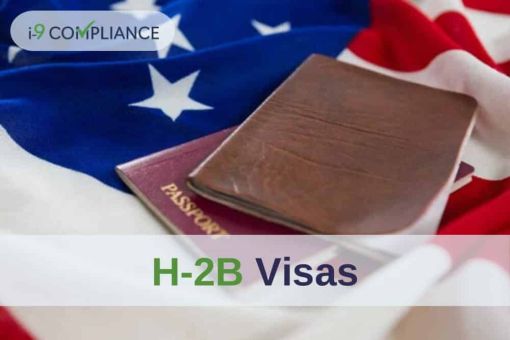USCIS Announces Cap on Additional H-2B Visas Reached as Labor Shortages Continue

On May 18th, 2022, the United States Citizenship and Immigration Services (USCIS) announced the availability of 35,000 H-2B visas in addition to the regular allotment. These visas are for temporary nonagricultural workers for businesses that cannot hire willing and able U.S. citizens for the positions. However, a week later, USCIS announced that the cap for the 23,500 visas designated for prior H-2B visa holders had been reached. According to USCIS, it will continue accepting petitions for the 11,500 visas designated for El Salvador, Guatemala, Honduras, and Haiti citizens.
The Department of Homeland Security (DHS) and the Department of Labor (DOL) made these visas to help alleviate the immense labor shortage affecting employers across the U.S. Despite these steps, the deficit remained high in recent months, as recorded by the Bureau of Labor Statistics. According to a report, there were 11.4 million openings on the last business day of April.
The first announcement of these visas was made in March, only a few months after the agency had allocated an extra 20,000 visas for the first half of the fiscal year 2022. In addition to the annual cap of 66,000 set by Congress, the DHS and DOL introduced 55,000 H-2B visas in 2022. Though the introduction of these additional temporary, seasonal workers have been welcomed by many companies, other officials have stated that more needs to be done to address the labor shortage. As a result, officials insist on legislative reform to increase the caps for temporary employment-based visas and other comprehensive immigration reforms.
According to USCIS, the agency has taken multiple steps in recent months to help alleviate the shortage of workers. These steps include expediting the processing of Employment Authorization Documents (EAD) for health and childcare workers, and expanding the automatic extension period of many EADs to a total of 540 days. The agency has stated that it will continue to monitor the issue and feedback it receives from stakeholders to help determine any further steps it should take.
Employers looking to hire temporary, employment-based visa holders must pay significant attention to the requirements, such as the Employment Eligibility Verification (Form I-9) process. In some cases, completing Form I-9 can be challenging. Therefore, employers should invest in an electronic I-9 management system. Such systems can ensure the company stays in compliance, guide HR personnel through the process, and provide a uniform and secure storage of the documentation.
Automate your employment eligibility verification today with the ensured compliance of I-9 Compliance.